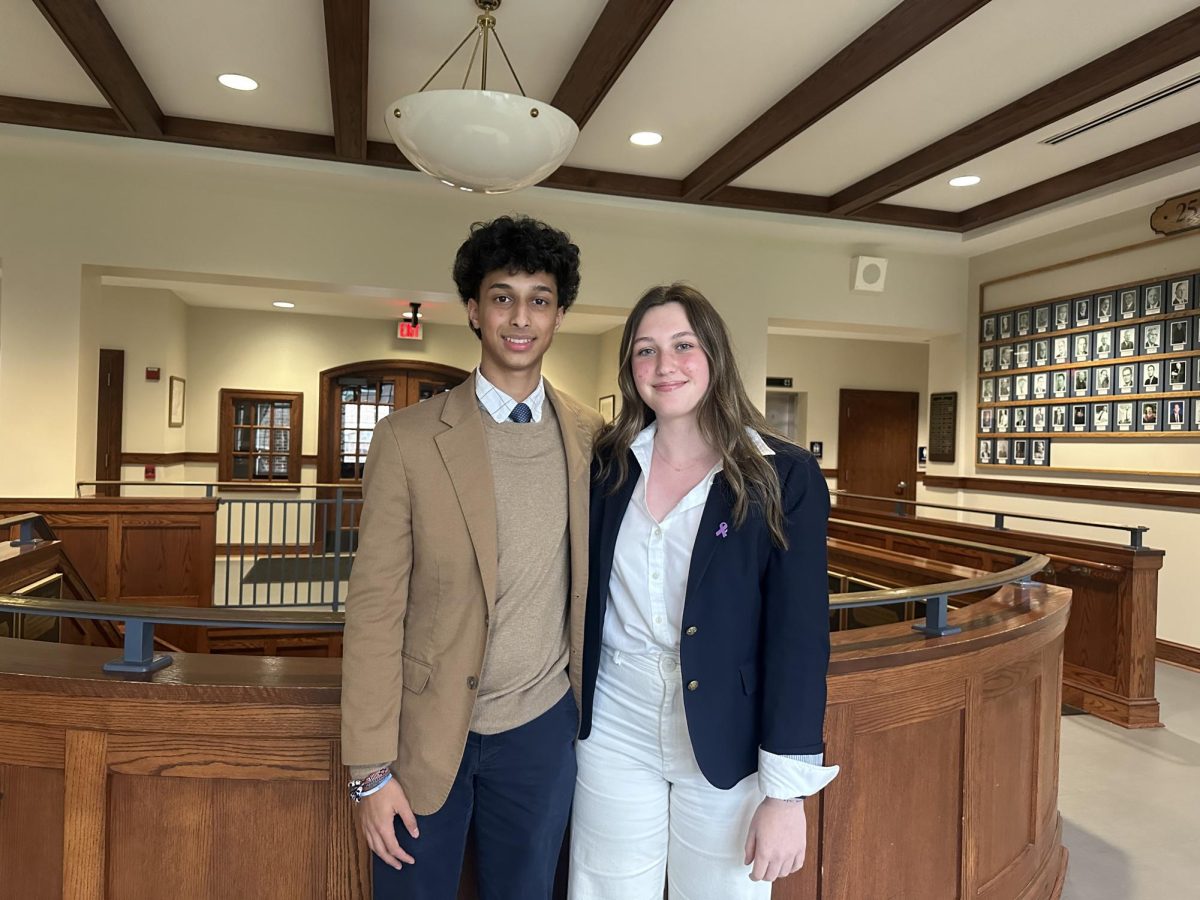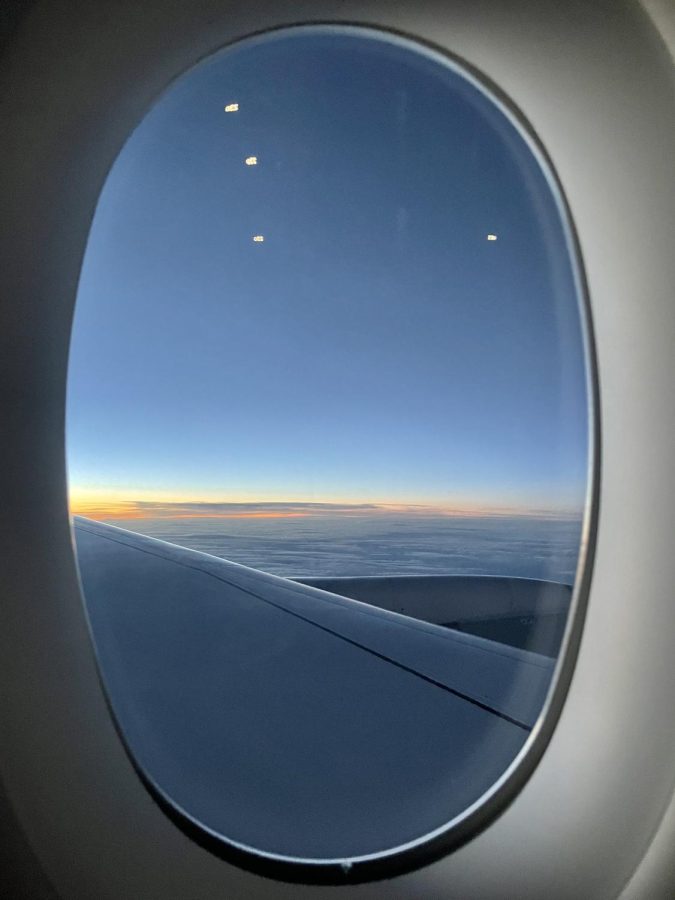International students grapple with jet lag after returning from break
Media: Kiern Lim ’25
Many international students struggle with jet lag after traveling between countries. Some students and faculty share their tips for overcoming the sleepy symptoms, like using apps or closely monitoring their rest time.
You watch as your airplane touches down the taxiway, and you know it is time to return to school. The scenery outside the plane window shifts from barren valleys to seemingly endless rows of city lights in the distance, and you feel the strong urge to sleep. Suddenly it hits you: you have jet lag. International students experience this realization after every school break, and quite many of them suffer to re-adjust to the time zone.
According to The Mayo Clinic, desynchronosis, more commonly known as jet lag disorder, is “a temporary sleep problem that can affect anyone who quickly travels across several time zones.” When experiencing jet lag, one may face sleep problems from not being able to fall asleep to waking up early, daytime fatigue, not being able to focus or function at your usual level, mood changes, or a general feeling of not being well.
Many of the international students on campus have communicated their difficulties in overcoming jet lag. Crystal Zhao ’26, a 3rd form student from Shanghai, China, expressed her experience in dealing with jet lag.
“It was difficult for me to stay up in classes and study hall during the first week of school. I was especially tired during the afternoons, and the sports or afternoon activities immediately required one day after arriving on campus took up a lot of my energy. My body was not used to the American time zone, and it took me some time until I started sleeping and waking up on time,” Zhao said.
Lulu Zhou ‘26, a 3rd form student from Beijing, China, also experienced similar events.
“When I first came back to school, I would accidentally fall asleep during and after study hall because I had been awake since 4 or 5 in the morning.”
Alongside these difficulties, international students have expressed some thoughts they have about the school schedule, and what they would want to modify about it.
“I would add travel days at the start and end of holidays. No classes on these days would help students recover from jet lag, reduce travel stress, and allow for adjusting to new time zones.” said Erick Sun ‘24, a 5th form student from Hong Kong.
“On the day we get back from longer breaks, it would be great if we could cancel study hall so international students could sleep earlier.” said Lulu Zhou, ’26.
Combating jet lag disorder in a fast manner is quite toilsome, as there is no exact way to alleviate its symptoms. Everyone experiences a different side of jet lag, and it affects them for different durations of time. While some students can easily adjust to the time zone just a day after arriving in America, others may take up to two weeks to fully reprogram their bodies.
Helen Qiu, Hill’s International Family Liaison, has some methods and habits to ward off sleepiness.
“Try to arrive at school, or to America at least a day before school opens: the earlier, the better,” Qiu said. “This will allow students to properly rest, and gather the items they may need for school.”
“Mobile apps like Calm, a meditation app designed to help you wind down and fall asleep better might help with alleviate the difficulty of falling asleep.”
Furthermore, Qiu urged students to not attempt immediately sleeping off the effects of jet lag.
“Make sure to stay awake and sleep on time without taking a nap on the first day back to rebuild the sleep cycle,” Qiu said.
Erick Sun ‘23 uses several strategies to counter and prevent his jet lag symptoms.
“Before a trip, I adjust my sleep to match my destination’s time zone,” Sun said. “During the flight, I stay awake or sleep, depending on my arrival time.”
“If it’s night, I stay awake; if it’s the day, I sleep,” Sun said. “Upon arrival, I soak up sunlight to regulate my circadian rhythm, avoid caffeine as much as I can, and take melatonin if needed.”
Jet lag is ultimately a course of field that needs to be gone over if you are an international student, or if you want to travel overseas.
“With planning and good sleep habits, it’s possible to minimize jet lag and enjoy the trip,” Sun said.



























